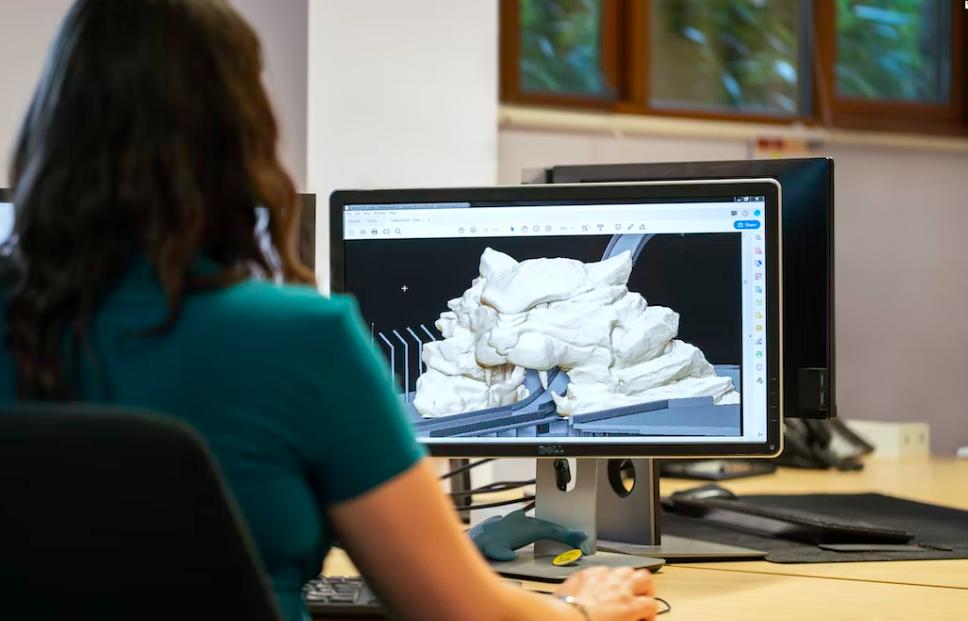How can I build Confidence in my Computer Skills?
Learn how to build confidence with several methods for your computer skills.

Selfpause Affirmation App
Download the app to get 1,000’s of affirmation meditations and everything you need to write, record and listen to your own.
Computer skills are more important than ever in today’s digital age. Having confidence in your computer skills, whether for work, school, or personal use, can make a significant difference in your productivity and success. When it comes to computer skills, however, many people lack confidence. They may be intimidated by the process because they are overwhelmed by technology, lack the necessary knowledge or experience, or are simply intimidated by the process. Don’t be concerned if you are one of these people. There are several methods for increasing your confidence in your computer skills.
Begin with the fundamentals.

The first step toward gaining confidence in your computer skills is to begin with the fundamentals. This includes learning the fundamentals of computer operation, such as turning it on and off, navigating the operating system, and using basic software applications such as word processors and web browsers. These skills can be learned through online tutorials, community classes, or by simply practicing on your own. As you gain confidence in the fundamentals, you can progress to more advanced skills.
Attend a class or workshop.

Taking a class or attending a workshop is another excellent way to boost your computer confidence. Many community centers, libraries, and schools offer classes in fundamental computer skills as well as more advanced topics such as coding, graphic design, and video editing. These classes are frequently taught by experienced instructors who can provide personalized feedback and support, and they can be a great way to meet other learners who have similar goals to yours.
Look for a mentor.

Consider asking someone who is knowledgeable about computers to mentor you. A mentor can be an invaluable resource for developing new skills, receiving feedback on your work, and providing guidance and support as you gain confidence. Look for someone who is patient, knowledgeable, and eager to share their knowledge.
Practice, practice, and more practice

Computer skills, like any other skill, require practice to master. The more you practice, the more at ease you’ll feel with the technology and the more confident you’ll feel. Make time every day or week to practice your skills, whether it’s learning a new software application or coding. You can also learn new skills and get feedback on your work by using online resources such as tutorials, blogs, and forums.
Concentrate on one skill at a time.

Too many computer skills to learn at once can be overwhelming and counterproductive. Instead, concentrate on one skill at a time and devote sufficient time to mastering it before moving on to the next. This will assist you in establishing a solid foundation of knowledge and skills and will keep you from becoming overwhelmed or discouraged.
Join a group.

Joining a community of like-minded learners can be a great way to boost your computer confidence. Online communities can be found through social media, forums, and other online platforms, or you can join in-person groups such as coding clubs or maker spaces. These communities can provide a safe space for you to ask questions, receive feedback, and learn from others who share your interests.
Learn from your errors.

Making mistakes is an inevitable part of the learning process, and learning from them is critical for developing confidence in your computer skills. Rather than being discouraged by mistakes, view them as opportunities to learn and grow. Determine what went wrong and try to figure out why it happened. Then, take steps to avoid repeating the same error in the future. You can become a better learner and gain more confidence in your abilities by learning from your mistakes.
Seek out difficulties.

As your computer skills improve, it’s critical to seek out challenges that will push you to learn and grow. Taking on a more complex project, learning a new programming language, or experimenting with a new software application are all examples of this.
While taking on new challenges can be intimidating, it is also a great way to build confidence in your abilities. As you take on new challenges, you’ll gain new skills and experiences that will boost your confidence and ability.
Celebrate your accomplishments.

Finally, as you gain confidence in your computer skills, remember to celebrate your accomplishments. Take the time to recognize your accomplishments and be proud of what you’ve accomplished, whether it’s mastering a new software application, finishing a complex coding project, or simply becoming more comfortable with technology. Celebrating your accomplishments will keep you motivated and moving forward as you continue to grow and learn.
To summarize, developing confidence in your computer skills takes time and effort, but it is also necessary for success in today’s digital world. You can develop the confidence you need to be successful in your personal and professional life by starting with the basics, taking classes or workshops, finding a mentor, practicing regularly, focusing on one skill at a time, joining a community, learning from your mistakes, seeking out challenges, and celebrating your successes. Remember that everyone starts somewhere, and that with hard work and dedication, you can become a confident and capable computer user.
